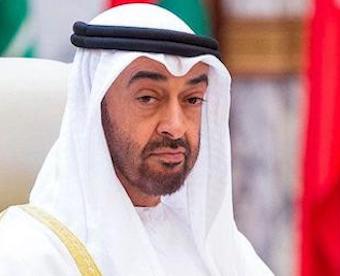




On August 13, the United Arab Emirates and Israel announced the normalization of relations between the two countries. This date has changed the history of the Middle East forever and has launched the war- tormented region, on a path of hope, peace, openness, development, and economic opportunities
The West has yet to grasp the relevance of this agreement. The European and US media, so intent on criticizing the policies of US President Donald Trump and Israeli Prime Minister Bibi Netanyahu, forget that peace is an achievement that must be supported. This is what Sheikh Mohammed bin Zayed Al-Nahyan, Crown Prince of Abu Dhabi and de facto leader of the UAE, understood.
In fact, this agreement stems from Sheikh bin Zayed’s vision and foresight, who has always prioritized peace in the region for his tranquil country. Critics of the deal rule out the possibility of normalizing relations with the current Israeli government. The UAE, however, did not sign an agreement with Netanyahu, but with Israel and its people who fervently desire peace with their Arab neighbors.
Sheikh bin Zayed is strongly convinced that peace and dialogue are today's challenges. For this reason, he intrepidly shattered a regional taboo on dialogue with Israel, a country with a Jewish majority. The UAE want to testify that peace and dialogue can foster the common good of the Middle East area and that peace, not war, holds the key for unlocking the region's human potential.
It is also worth noting that this deal does not undermine the construction of a Palestinian state, but rather facilitates the process. In fact, thanks to the peace agreement between the United Arab Emirates and Israel, Netanyahu's plan to annex part of the Palestinian territories has been factually suspended. The Palestinians themselves can benefit from the agreement, since the deal provides a new framework for pressuring Israel to change its stances and policies on the Palestinian issue.
This historic agreement between the UAE and Israel is of comparable importance to Israel's two previous peace agreements: the peace with Egypt, signed by Israeli Prime Minister Menachem Begin and Egyptian President Anwar Sadat in 1979, and the peace with Jordan, signed by Israeli Prime Minister Yitzhak Rabin and Jordan's King Hussein in 1994. Perhaps, however, this agreement is of even greater significance, as the UAE is a regional leader due to its economic and political importance.
This agreement is opposed by Iran, Qatar and Turkey and organizations such as Al-Qaeda, ISIS and Hezbollah. These same countries and organizations are responsible for destabilizing the entire Middle East and North Africa and also work to compromise Western security.
The UAE, under the leadership of Sheikh bin Zayed, is the Middle Eastern country that has chosen the path of dialogue, reconciliation and just peace. This rich and technologically-advanced Arab state has also imparted a lesson to us Westerners, who fancy ourselves as the only ones qualified to mediate global conflicts and the ones capable of prescribing what is right and wrong for the Arab world. The UAE taught us that the common good transcends ideologies, that true dialogue dispels preconceived notions and that only peace offers us hope.
For these reasons, Sheikh bin Zayed should be awarded the Nobel Prize for Peace, because thanks to his will and the courage of his choices, the Middle East can begin writing a new history suffused with optimism not only for the region, but for all humanity.


|
é uscito il N° 119 di Quaderni Radicali "EUROPA punto e a capo" Anno 47° Speciale Maggio 2024 |

|
è uscito il libro Edizioni Quaderni Radicali ‘La giustizia nello Stato Città del Vaticano e il caso Becciu - Atti del Forum di Quaderni Radicali’ |

|
è uscito il libro di Giuseppe Rippa con Luigi O. Rintallo "Napoli dove vai" |

|
è uscito il nuovo libro di Giuseppe Rippa con Luigi O. Rintallo "l'altro Radicale disponibile |